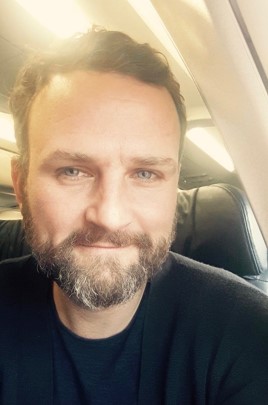We are happy to announce the start of an exciting new format: the ENPA Dialogues.
ENPA Dialogues is a platform for encounters with scholars from diverse research fields that engage in different, contradicting, or mutually supporting perspectives, yet all converge in their belief in practices of (experimental) ethnography and fieldwork.
The first Dialogue invites Jarrett Zigon and Greg Downey to converse on psychological anthropology and everything that relates to it. Everyone is invited to join in regardless of disciplinary background or career stage. We are also happy if you come along for self-paid dinner and/or drinks afterwards.
Place: Institute of Social and Cultural Anthropology, FU Berlin, Landoltweg 9-11, 14195 Berlin, Room 014
Time: September 19th, 2019, 2 – 6 PM
A War on People: Attuned Care, Community, & the Anti-Drug War Movement
Jarrett Zigon
This talk considers attuned care as onto-ethical-political activity. Attuned care is not explicit care for this pain or that suffering. Rather, it is that which allows for the very possibility of being-human-together. Being-human, that is, as a being always already intertwined in relations with other beings – human and nonhuman alike – for whom we have, because of this ontological intertwining, obligations of care. This will be taken up through a critical hermeneutic exploration of the anti-drug war movement, the long-term political project of which can be articulated as the onto-ethical-political enactment of worlds of attuned care.
An Ontogenetic Approach to Our Biocultural Species, with reference to freedivers and blind echolocators
Greg Downey
The “ontological turn,” among other trends in anthropology, has inspired the discipline
increasingly to an idealist or cognitivist approach to the question of “human being,” ironically reinstantiating some of the most excessive qualities of social and cultural constructionism. Drawing on the now crucial analysis of Amazonian Perspectivism that helped to spark the “ontological turn,” as well as field research with freedivers and blind individuals who echolocate or perceive space through sound, this talk approaches the question of how we become human from an embodied, neuroanthropological perspective. The paper argues that diverse developmental trajectories, especially skill acquisition and sensory training, are the foundation for cultural diversity through human ontogeny. From a neuroanthropological perspective, close attention to human “becoming” and the various ways that we can “be” human shows that the boundary between the “cultural” and “biological” is conceptual, not empirical, and that an extreme idealist approach to cultural variation, including some of the most popular ways of theorizing this variation, obscures some of the profound ways that we, as a species, make ourselves diverse.
Comment: Thomas Stodulka

Jarrett Zigon is the Porterfield Chair of Bioethics and Professor of Anthropology at the University of Virginia, as well as the Founding Director of the Center for Data Ethics and Justice, and the Director of the Bioethics Program at UVA. He is the author of several books, including A War on People: Drug User Politics and a New Ethics of Community (University of California Press), Disappointment: Toward a Critical Hermeneutics of Worldbuilding (Fordham University Press), HIV is God’s Blessing: Rehabilitating Morality in Neoliberal Russia (University of California Press), and Morality: An Anthropological Perspective (Berg Press).

Greg Downey is Professor of Anthropology at Macquarie University. He is author of Learning Capoeira: Lessons in Cunning from an Afro-Brazilian Art (Oxford) and co-editor (with Daniel Lende) of The Encultured Brain: An Introduction to Neuroanthropology (MIT). He is currently Editor of Ethos, the journal of the Society for Psychological Anthropology, and has published extensively online including through Neuroanthropology.net.

Thomas Stodulka is Junior Professor for Social and Cultural Anthropology at FU Berlin. He is the co-founder and co-convenor of the European Network for Psychological Anthropology (ENPA) and board member of the German Association of Anthropology. He is the author and co-editor of Affective Dimensions of Fieldwork and Ethnography (2019), Emotions on Expeditions – A Pocketbook for Ethnographers (2019), Emotions in the Field – Conversations (2019), Coming of Age on the Streets of Java (2017), and Feelings at the Margins (2014).
Leave a Reply